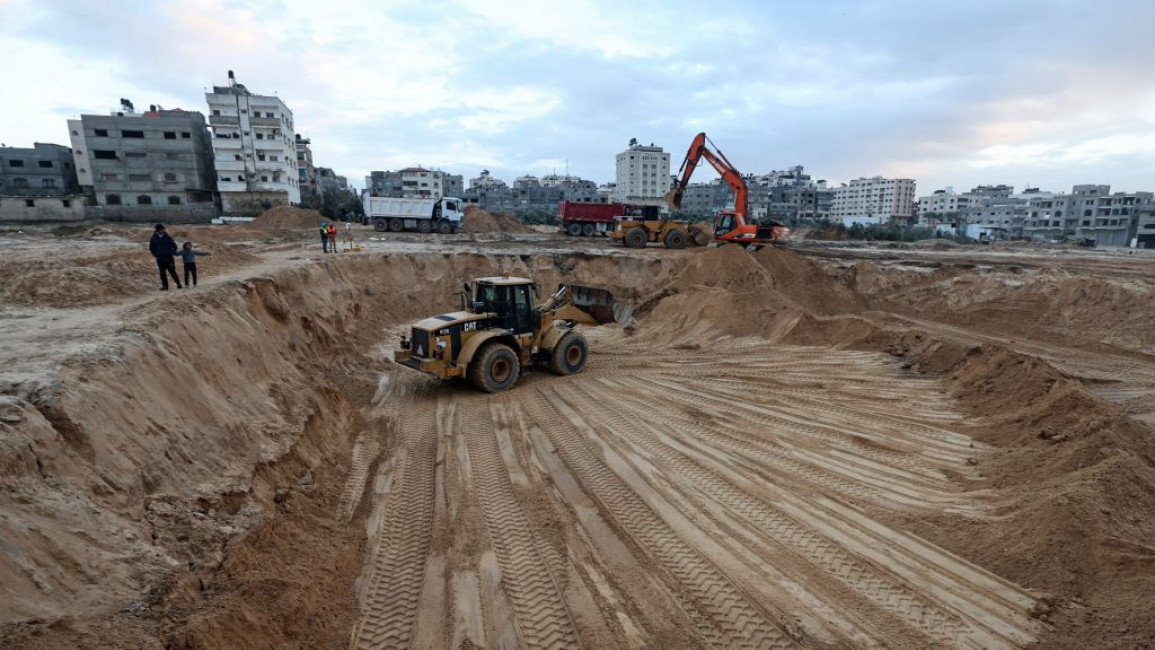Builders unearth 2,000-year-old Roman cemetery in Gaza
Builders have discovered a 2,000-year-old Roman Cemetery in Beit Lahia town in the north of the coastal enclave, the Gaza-based Tourism Ministry and Antiquities said on Sunday.
The new discovery was by local builders who were preparing the area to construct the Egypt-funded city, Jamal Abu Ridah, a director at the ministry, told The New Arab.
"As soon as the first grave was discovered, our crews went to the site and conducted preliminary examinations," he said, adding "We informed the ministry of works to stop works in the area."
So far, 20 graves were found, Abu Ridah said, adding that the team expect to unearth 80 in total within the 50-square-meter cemetery. Only two graves were opened, one contained skeletal remains and some clay jars.
The ministry formed a specialised committee to study the archaeological finds, identify their nature and historical value, and come up with appropriate recommendations to deal with the discovered site.
Because of the shape of the graves and the relatively ornate decorations, they likely belonged to "senior ranking people" in the Roman empire during the first century, said Abu Ridah.
Unlike Muslim graves from later periods that face north to south, the Roman graves lie east to west, he said.
"We have made several discoveries in the past, this is the most important archaeological discovery in the past 10 years," he said.
The area has been closed off to journalists and the public while the site is organised and made safe for visitors, the ministry said.
Ancient church discovered at Gaza construction site https://t.co/5AfyQtbGX9 via @The_NewArab pic.twitter.com/54Rg3Qouhi
— Joe Catron (@jncatron) April 9, 2016
"Gaza was considered as a trade corridor between the countries, so it is normal to uncover archeological sites that belong to the royal families," Abu Ridah added.
"Such archaeological sites will revive domestic tourism in the Gaza Strip and introduce people to the history of their region and its historical and geographical importance," he said.
In January, the ministry opened a reconstructed old Byzantine church in Jabalia refugee camp in the north of the Gaza Strip, turning it into a public museum after four years of works.
According to historians, the Byzantine church was established in the Gaza Strip 1,700 years ago, and it was a property of the royal family at that time.


![President Pezeshkian has denounced Israel's attacks on Lebanon [Getty]](/sites/default/files/styles/image_684x385/public/2173482924.jpeg?h=a5f2f23a&itok=q3evVtko)



 Follow the Middle East's top stories in English at The New Arab on Google News
Follow the Middle East's top stories in English at The New Arab on Google News


